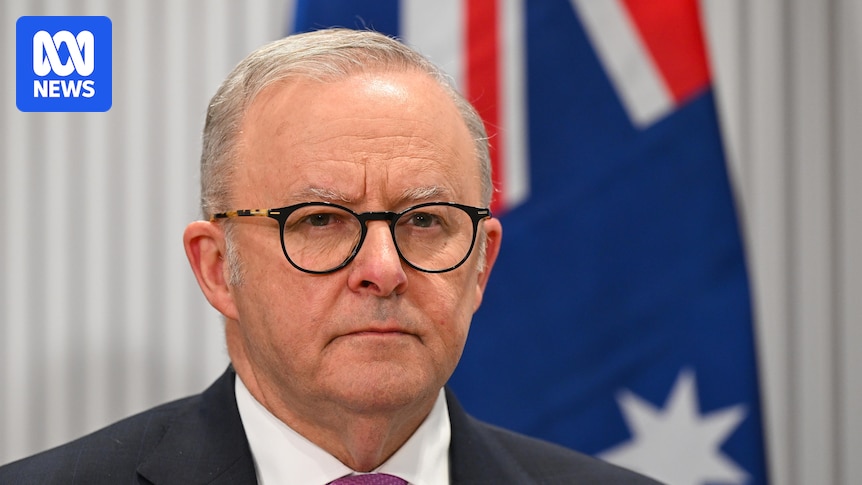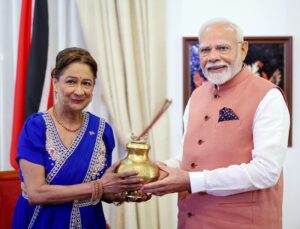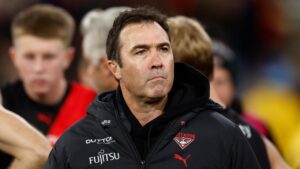
Anthony Albanese, the Prime Minister of Australia, is set to deliver a speech that underscores the importance of Australian independence within its alliance with the United States. In a tribute to John Curtin, a revered wartime leader and former Labor Prime Minister, Albanese will emphasize that Curtin is remembered not solely for aligning with America but for his commitment to speaking for Australia.
The timing of this speech is critical, as it coincides with a period of uncertainty in Australia’s strategic relationship with the United States. The federal government is currently navigating an unpredictable White House, tariffs imposed by the Trump Administration, the implications of the AUKUS pact, and the broader trajectory of US foreign policy under Donald Trump.
Honoring John Curtin’s Legacy
On Saturday night, Albanese will address the John Curtin Research Centre, marking the 80th anniversary of Curtin’s leadership, often hailed as the “father” of the Australia-US alliance. Curtin is celebrated for his decision to look towards America following the United Kingdom’s devastating defeat in Singapore in 1942.
Albanese will acknowledge the alliance as a cornerstone of Australian foreign policy and a vital defense and security partnership. However, he will also stress that this alliance was a product of Curtin’s leadership, not its entirety. Albanese is expected to say,
“Curtin’s famous statement that Australia ‘looked to America’ was much more than the idea of trading one strategic guarantor for another, or swapping an alliance with the old world for one with the new. It was a recognition that Australia’s fate would be decided in our region.”
Strategic Independence and Sovereignty
Albanese will highlight Curtin’s understanding that Australia’s security could not rely on London or vague assurances from Britain. Curtin’s leadership was about establishing an Australian foreign policy grounded in strategic reality rather than tradition. Albanese will assert,
“We needed an Australian foreign policy anchored in strategic reality, not bound by tradition. So we remember Curtin not just because he looked to America. We honor him because he spoke for Australia.”
The Prime Minister will also commend Curtin for resisting pressure from both President Roosevelt and Prime Minister Churchill to deploy Australian troops to Burma instead of returning them home for Australia’s defense. Albanese will argue that had the US and UK prevailed, many Australians would have faced death or capture as Japanese forces advanced on Burma, and Curtin’s assertion of sovereignty averted a potential disaster akin to the fall of Singapore.
Economic and Defense Policies
Albanese will draw parallels between his government’s economic initiatives and Curtin’s wartime industrial strategies. While the Albanese government has committed to the AUKUS pact and its ambitious nuclear submarine project with the US, it has also expressed frustration over the Trump Administration’s tariffs and resisted Washington’s calls for increased Australian defense spending.
Despite having spoken with Trump three times by phone, Albanese has yet to meet the US President face-to-face, following Trump’s early departure from the G7 summit in Canada due to US-Iran tensions.
Expert Analysis
Professor James Curran from the University of Sydney described Albanese’s speech as “easily the most significant” of his tenure. Curran noted,
“It’s significant not just for the way in which Albanese invokes the Curtin legend, but the time in which he is doing it – when Australia is again under significant pressure from a great power to adopt policy courses not necessarily in Australia’s interests.”
Curran emphasized that Albanese is using Curtin’s legacy to signal to both Washington and Australians that a close alliance does not preclude standing up for national self-respect. He added,
“Leadership is as much about tending to the domestic hearth and what we have built here as it is in safeguarding the continent’s security.”
As Australia navigates its complex relationship with the United States, Albanese’s speech serves as a reminder of the delicate balance between maintaining strategic alliances and asserting national independence. The Prime Minister’s invocation of Curtin’s legacy highlights a continued commitment to ensuring that Australia’s foreign policy decisions are made with its own interests at the forefront.







